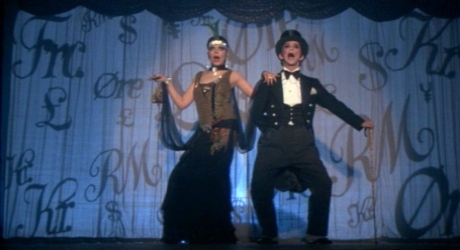
“Curiosity is a luxury reserved for the financially secure,” writes Tara Westover in her 2018 memoir Educated. Recounting her time as a severely cash-strapped college student, she explains why her academic performance was hindered by her material reality: “…my mind was absorbed with more immediate concerns, such as the exact balance of my bank account, who I owed how much, and whether there was anything in my room I could sell for ten or twenty dollars.” I’ve been turning over this passage in my head since reading it a month ago. Certainly the state of my bank account has a direct correlation to my own cycles of curiosity and incuriosity—I have greater capacity to write well and think critically if my waking hours are not consumed by whether or not I’m going to be able to pay the bills on time.
We’ve seen this dynamic play out in culture writing at large. While struggling publications continue to shutter or lay off mass numbers of staffed employees, sustainable freelance opportunities seem limited to snappy listicles or bad-faith hot takes at the expense of nuanced long-form writing. Craft and curiosity are a luxury in a market that demands SEO-friendly content. This is something we’ve actively tried to combat at cléo, but running the journal has not been without its financial concerns. We’ve been lucky enough to be able to operate through generous donations from our patrons, as well as arts grants over the years, but the future is always an uncertainty.
Capital is never very far from our minds, and so for the first issue of the year we’ve asked our writers to consider the ways systems of oppression feed into capitalism and how it manifests in (or how it can be challenged by) film. First up is Annabel Brady-Brown interviewing Valérie Massadian about Milla and the anti-capitalist and humane values that drive her filmmaking. Then Ann Lewinson dives into Margot Benacerraf’s documentary-fiction hybrid Araya, an unsung precursor to the 1960s anti-capitalist/anti-colonialist/anti-Hollywood Latin American movement Third Cinema. At a time when precarious work is a reality for many, Cason Sharpe examines Clockwatchers and its four temp workers navigating the workplace, their disposability, the commodification of human time and the cost of trading time for capital.
Katie Duggan tackles the ownership of self in the similarly titled Janie’s Janie and Madeline’s Madeline. Then, Annette LePique explores failure and queer community in Marielle Heller’s Can You Ever Forgive Me?. Looking to how working class women figure into the interests of male directors, Jannette Bivona compares and contrasts how filmmakers deal with the women central to Alfonso Cuarón’s Roma and John Maloof and Charlie Siskel’s Finding Vivian Maier.
In a different take on “capital,” Kanika Katyal analyses the place of capital cities and their cultural representations in Basu Chatterjee’s Rajnigandha. Finally, for this issue’s Who We’re Watching, our own Michelle Kay speaks with Shirkers director Sandi Tan about cultural capital and the highs and lows of resurrecting her lost feature film in the form of a documentary.
Looking back at the last six years of cléo and ahead to its future, I think often of Tavi Gevinson’s thoughtful Editor’s Letter announcing the end of Rookie Magazine, and her admission that perhaps a magazine cannot be simply be a magazine anymore. Maybe so, but we’d like to think that maybe the cards hold something more in store for cléo than we could have ever possibly imagined.
– Mallory Andrews
April 23, 2019





